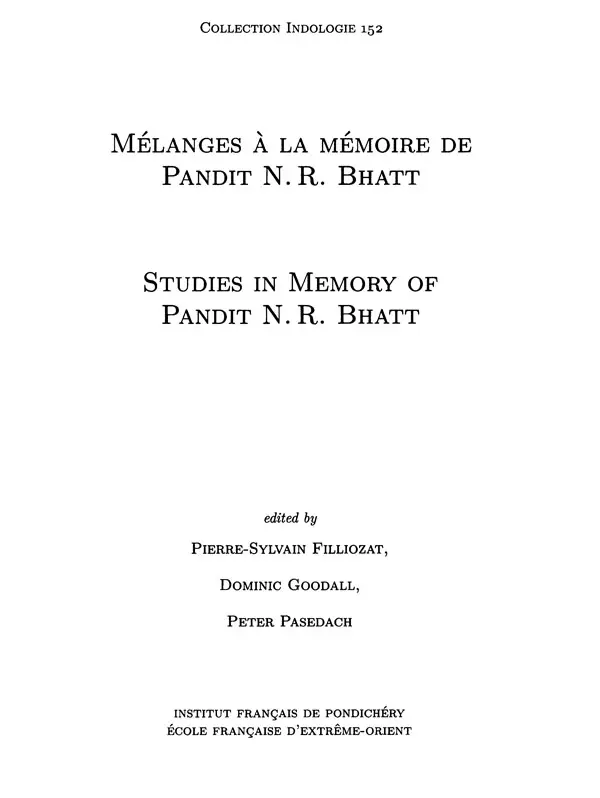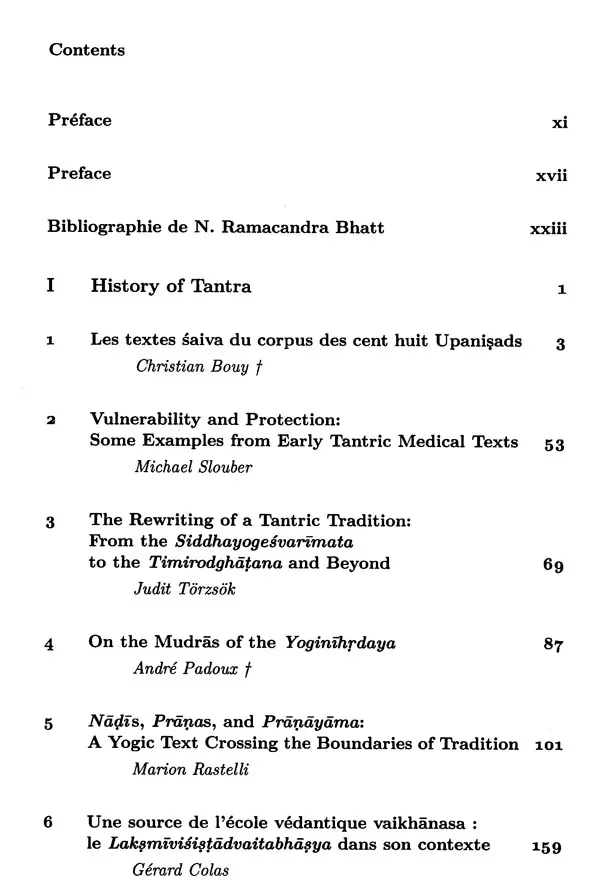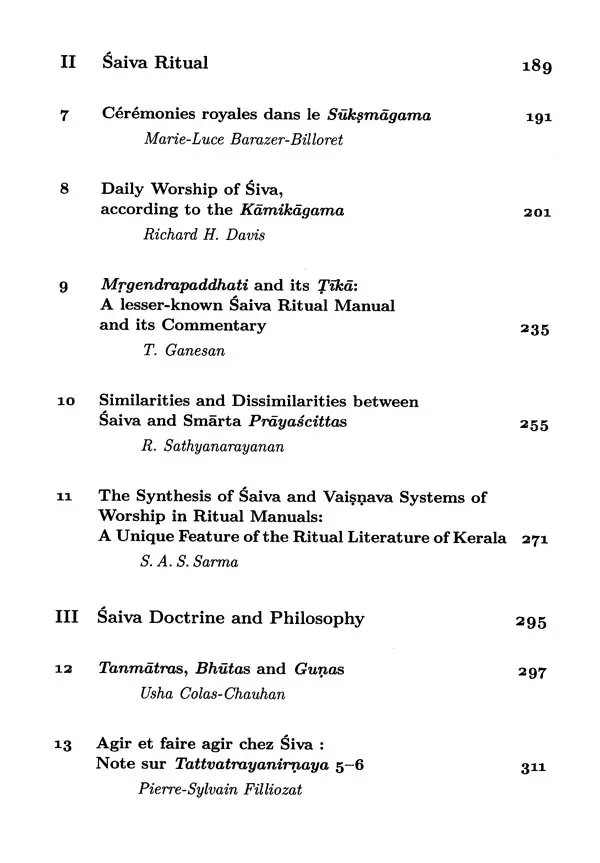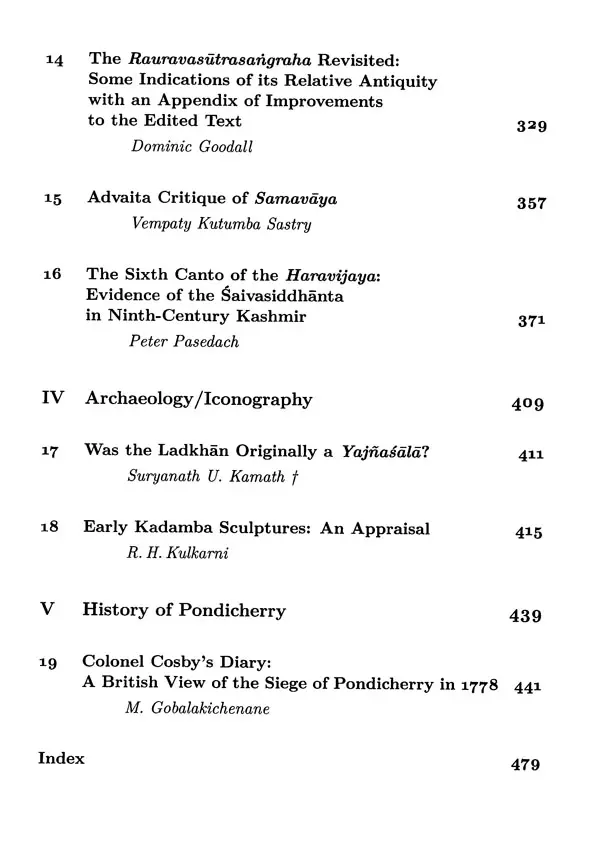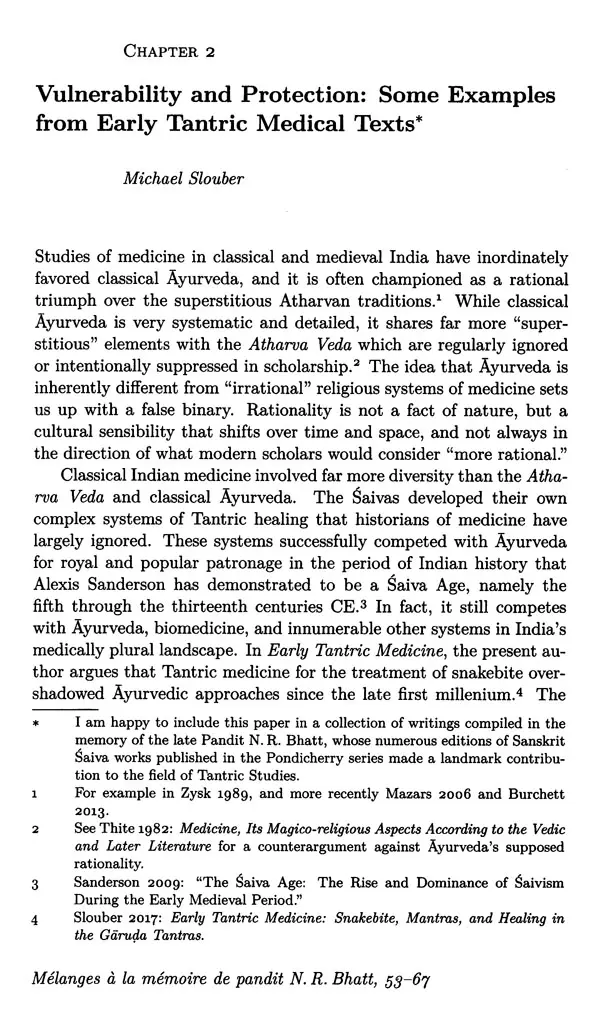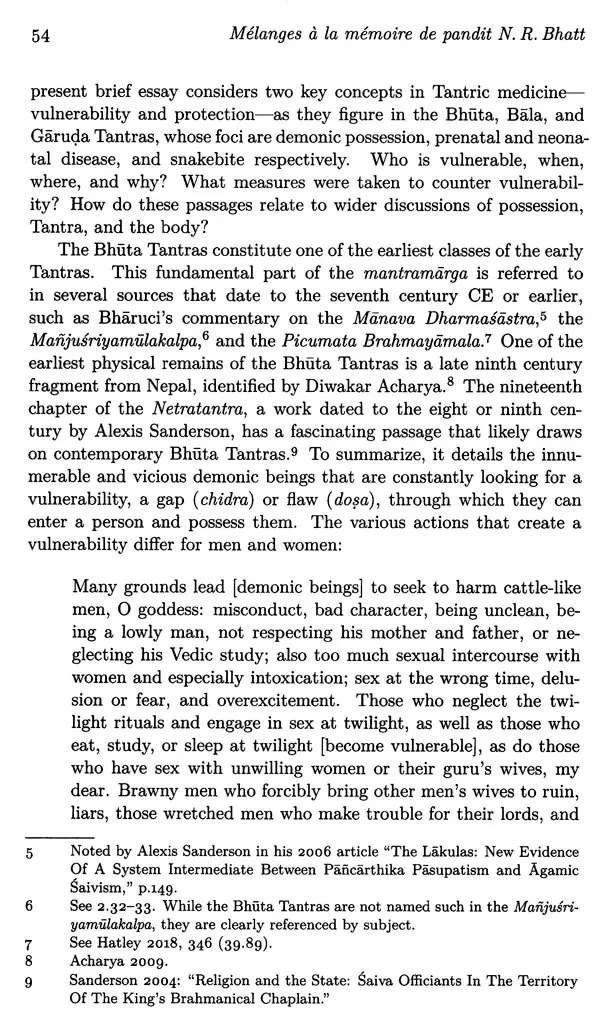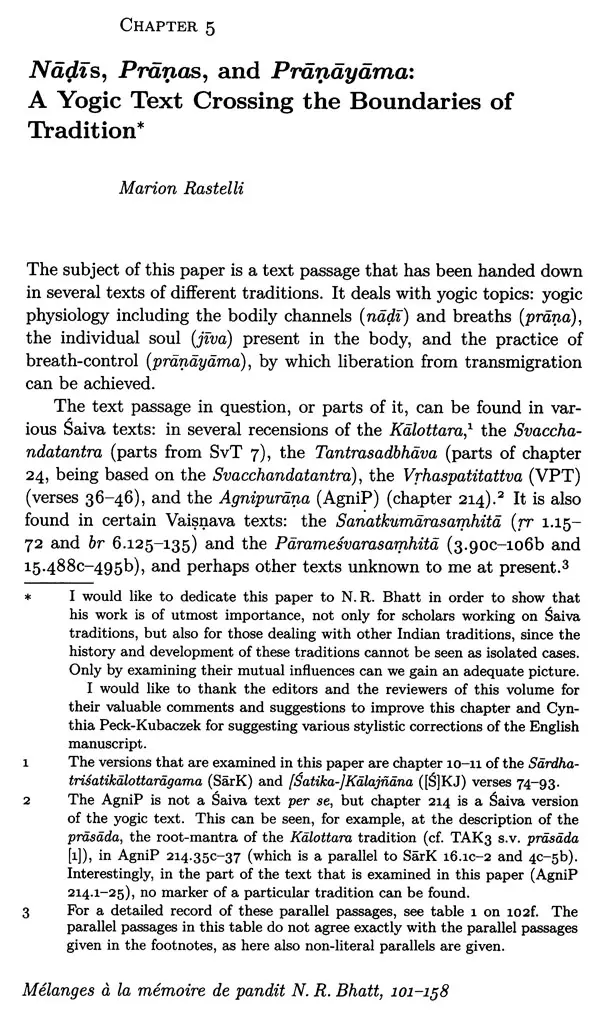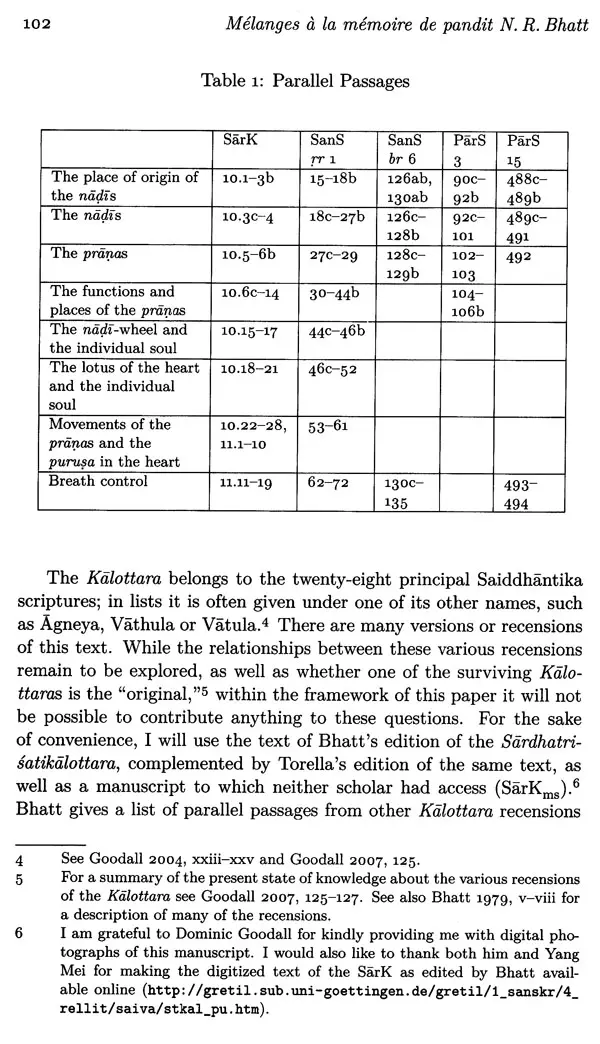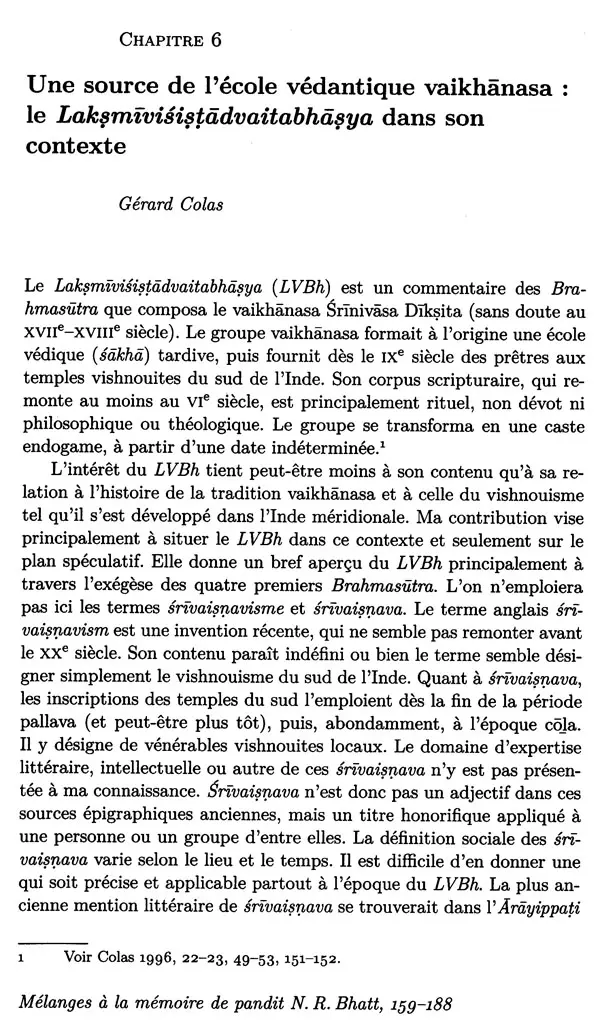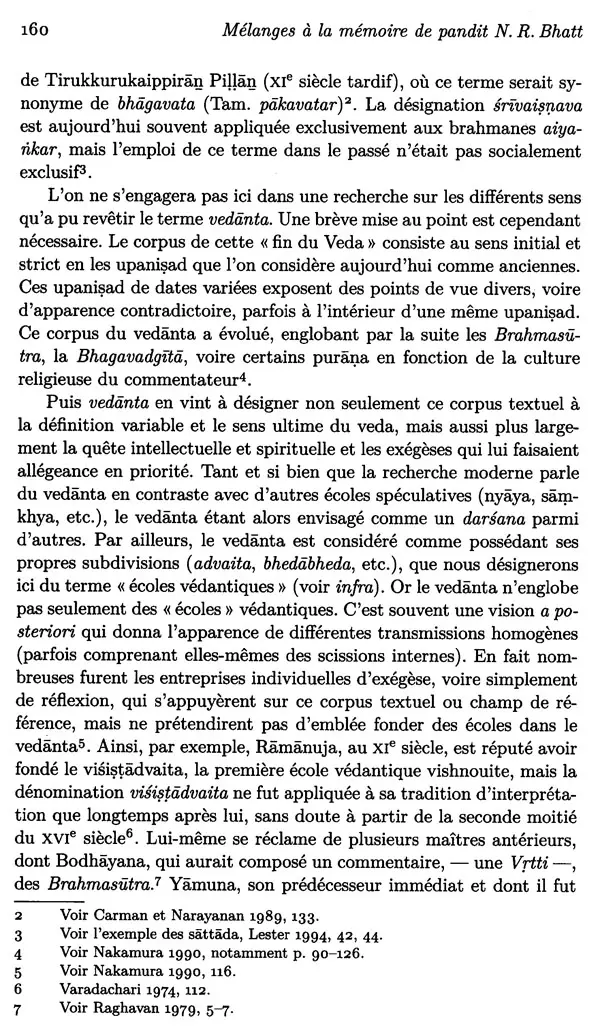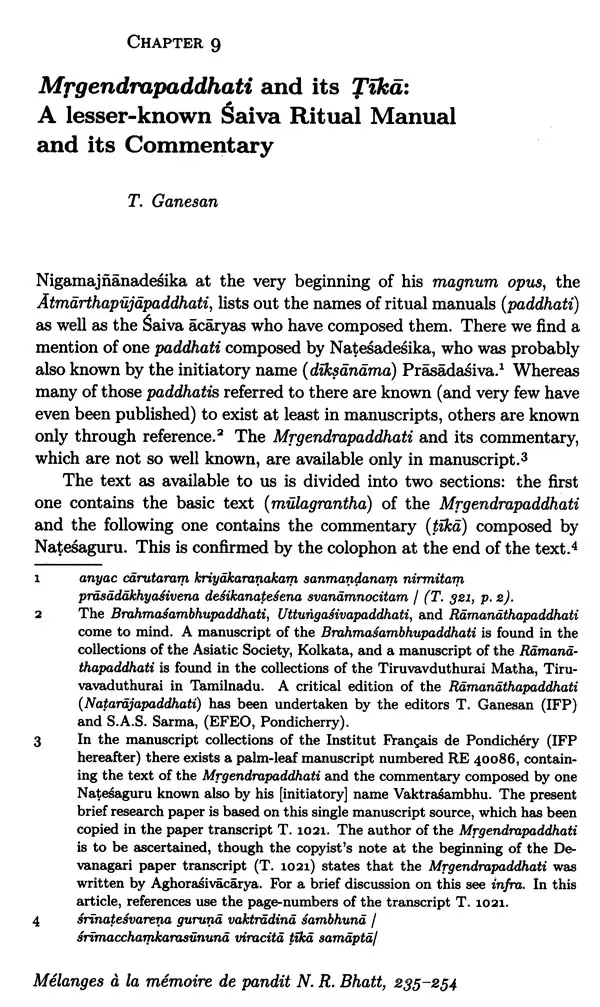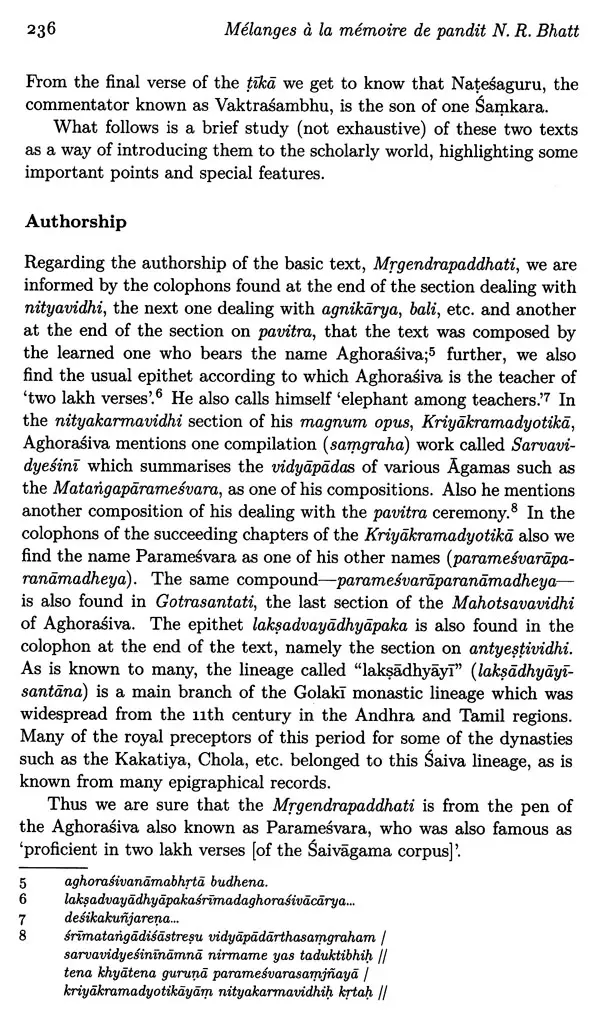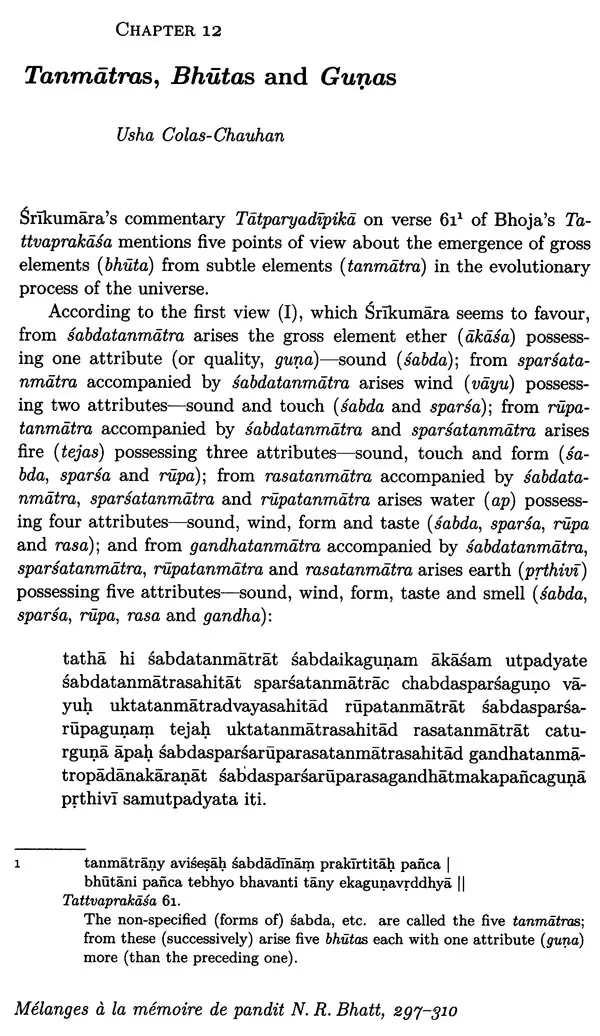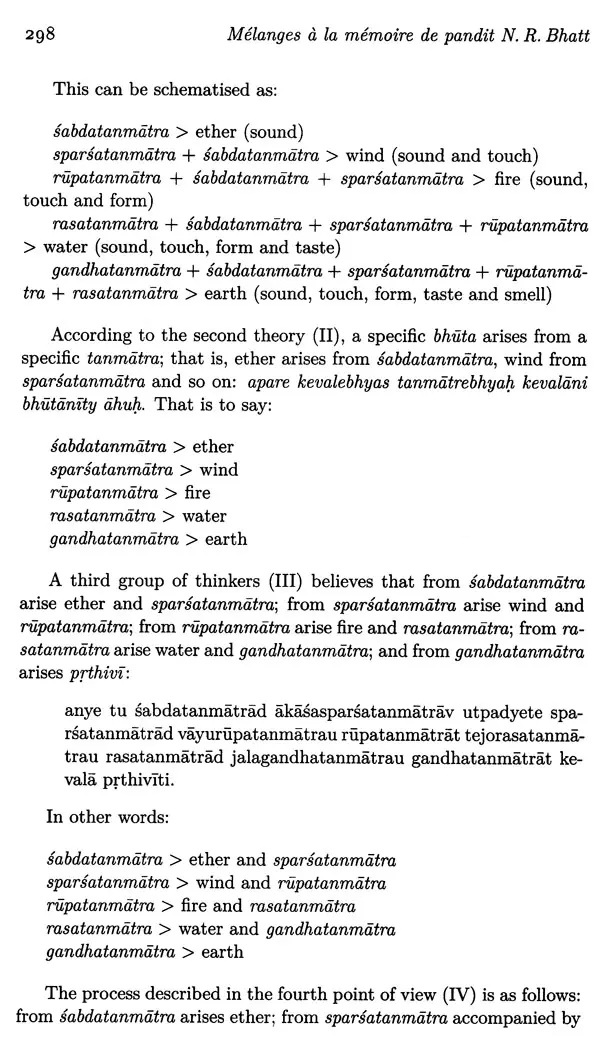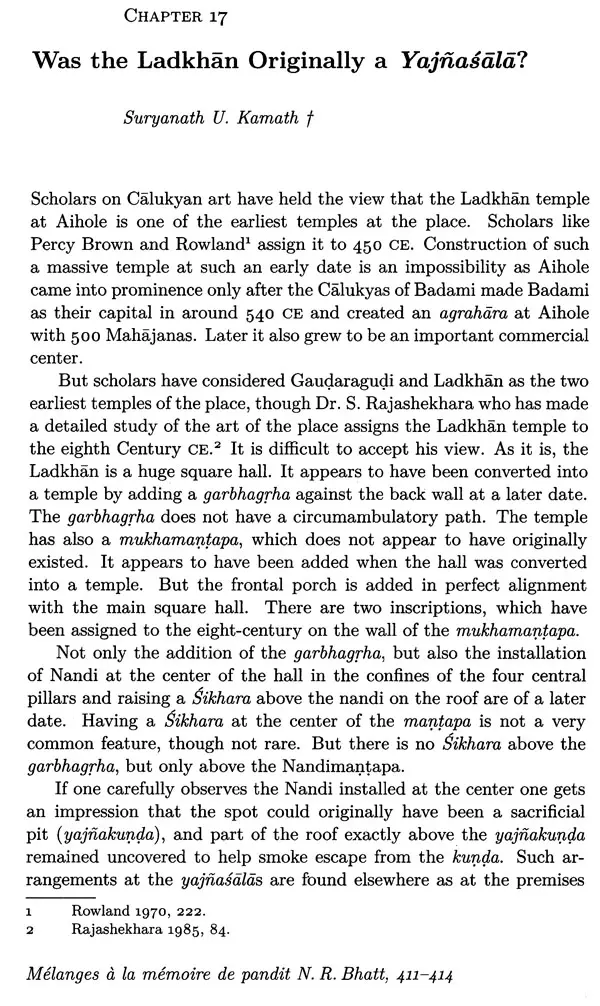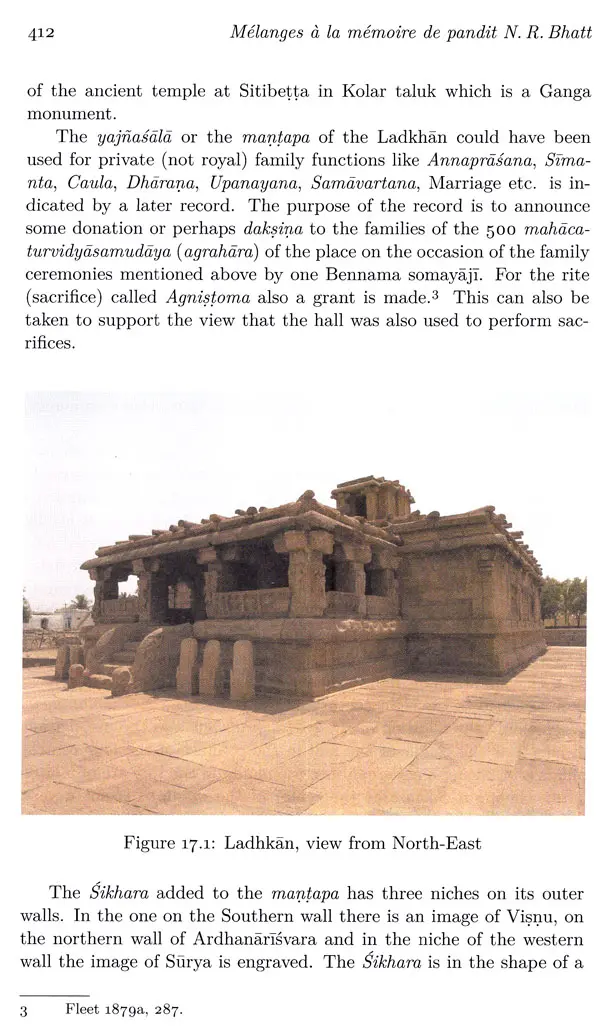
Melanges A La Memoire De Pandit N. R. Bhatt- Studies in Memory of Pandit N. R. Bhatt
Book Specification
| Item Code: | UAX493 |
| Author: | Pierre Sylvain, Dominic Goodall and Peter Pasedach |
| Publisher: | Institut Francais De Pondichery |
| Language: | English |
| Edition: | 2022 |
| ISBN: | 9788184702446 |
| Pages: | 497 (Color Illustrations) |
| Cover: | PAPERBACK |
| Other Details | 9.50 X 7.50 inch |
| Weight | 900 gm |
Book Description
This collection of essays honours the memory of the late Pandit N.R. Bhatt, who contributed to pioneering research into the history of Saivism in the French institutions of research in Pondicherry, notably through his editions of Sanskrit works of the Saivasiddhanta and through his work of gathering the largest collection of Saiva manuscripts worldwide, recognised as a Memory of the World collection by UNESCO in 2005. After a preface about N.R. Bhatt’s life and a bibliography of his œuvre, sixteen contributions by colleagues and disciples cover aspects of the history of tantrism, of Saiva ritual and doctrine. Two more articles deal with iconography and one last contribution publishes an eighteenth-century account of the siege of Pondicherry in 1778.
A member of the Academie des Inscriptions et Belles-Lettres, as well as of several scholarly societies, including the Societe Asiatique, and professor emeritus at the Ecole pratique des hautes etudes, Pierre-Sylvain Filliozat has published in several areas of Indology, including Paninian grammar, the history of Saivism, and Sanskrit belles-lettres. His latest book, the result of a decades-long collaboration with his wife Vasundhara Filliozat, is about the magnificent city of Vijayanagara (Hampi).
After studies in Oxford and Hamburg, Dominic Goodall was head of the Pondicherry Centre of the EFEO from 2002 to 2011. He has published critical editions of Saiva works and of classical Sanskrit poetry. During four years in Paris, he gave lectures on Indian and Cambodian Sanskrit literature at the Ecole pratique des hautes etudes (EPHE), before returning to Pondicherry in 2015. In 2016, he was elected foreign corresponding member of the Academie des Inscriptions et Belles-Lettres.
Peter Pasedach studied Classical Indology at Mainz and Hamburg, where he received his doctorate in 2018. He has taught in Hamburg, Gottingen and Leiden. Currently, he works on Mahakavyas of 9th-century Kashmir and their commentaries. Another area of interest to him is yoga studies.
Jean Filliozat (1906-1982) was the founder and first director of the French Institute of Pondicherry, as well as the creator of two new centres of the Ecole francaise d'Extreme-Orient, in Pondicherry and in Pune. But the person who gradually gathered there the necessary resources for all the activities regarding Sanskrit studies and set them in motion, was Pandit N. Ramacandra Bhatt.
Niddodi Ramacandra Bhatt (1920-2008) was born in Moodbidri (South Kanara Districtt) into a family of Sivalli Brahmins, also called Udupi Brahmins. His family, no doubt originally from Udupi, but based for many generations not far Niddodi, included several pandits who made the study and teaching of Sanskrit their profession. His father, Gururaja Upadhyaya, had pursued his studies in Cochin and taught at the High School in Moodbidri. He often spoke of his uncle, Ananta Upadhyaya, also trained in Cochin, who taught at Saint Aloysius College in Mangalore, and who was remembered as a great pandit. N. R. Bhatt's earliest education took place at Moodbidri's Board High School and included English. He then followed the course of traditional Sanskrit studies at Karkala. The defining element of his intellectual formation was a four-year course at Venkateshvara Sanskrit College in Tirupati.
The teaching there was at the time entrusted to a galaxy of some of the best pundits in southern India: Cakravarti Bhattacarya for belles lettres (sahitya), Setumadhavacarya, Nilameghacarya, and Raghavacarya for grammar (vyakarana), Uttamur Viraraghavacarya for New Logic (navyanyaya), D. T. Tatacarya for hermeneutics (mimamsa). Many of these masters have left valuable work in Sanskrit on the Madhva and Srivaisnava schools of Vedantic philosophy. It was the good fortune of N. R. Bhatt to have received from them the best training in Sanskrit letters that could be imagined. His young intelligence retained the best. His speciality was vyakarana, but he also knew English and Tamil well. Upon completion of his studies, he was recruited by the Adyar Library and Research Centre (Adyar Theosophical Society of Madras) as Assistant Librarian and Assistant Editor of the Adyar Library Bulletin. In fact, he began a long career as a scientific publisher of unpublished and unknown Sanskrit texts. His early works were in texts of Ayurveda, in both Kannada and Sanskrit, and then in the area of Dharmasastra, for he participated in the preparation of the great critical edition of the Krtyakalpataru that was published in Baroda (Gaekwad Oriental Series) under the general direction of K. V. Rangaswamy Aiyangar.
**Contents and Sample Pages**
